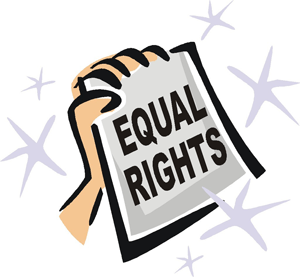EU seeks equal rights for the old, gay, disabled and religious
 Brussels - Old people, homosexuals, religious groups and the disabled should have the same protection against discrimination as everyone else, European Commission officials said as they launched a legal proposal on the issue Wednesday.
Brussels - Old people, homosexuals, religious groups and the disabled should have the same protection against discrimination as everyone else, European Commission officials said as they launched a legal proposal on the issue Wednesday.
"There is an inequality in (EU) legislation because people are protected from discrimination outside the workplace only on grounds of gender and race or ethnic origin. We must ensure equal treatment for all grounds," EU Equal Opportunities Commissioner Vladimir Spidla said.
At present, the EU has two main laws on discrimination. The first prohibits unfair treatment on any grounds, but only within the workplace, while the second prohibits all unfair treatment in any formal setting, but only on the grounds of race or gender.
Wednesday's legal proposal is aimed at plugging the legal gap by extending the bloc's existing ban to cover discrimination based on gender, race, age, disability, sexual orientation and religion in any economic setting.
The proposal should "ensure equal treatment in the areas of social protection, including social security and health care; education; and access to and supply of goods and services which are commercially available to the public, including housing," a press release from the commission - the EU's executive - said.
Thus, under the new rules, a hotel which refused a room to a gay couple because of their sexuality and a shop which refused to serve Muslim clients because of their faith would be subject to redress and prosecution, EU officials said.
And a car-insurance company which refused to continue covering an accident-free client as of their 75th birthday, and a letting company which refused to let a property to students, could both be prosecuted on the grounds of age discrimination, officials said.
Facilities which refused to provide adequate access for wheelchair-bound customers could also fall under the legislation. However, the proposal allows for flexibility based on the size of the business and the amount it would cost to make changes, officials said.
Thus a large, street-level restaurant which refused to install a door wide enough for wheelchair access could well face prosecution, while an Alpine cafe at the top of a mountain path would not be likely to face the same risk.
The legislation, while sweeping, does not amount to a blanket ban on all discriminatory practices.
Insurance companies will still, for example, be able to charge older clients higher premiums if they can prove that these are directly linked to objective risk analyses.
EU member states, in turn, will still be free to set minimum age limits on activities such as sex and drinking alcohol, and to deal with sensitive issues such as homosexuality in their school curricula in their own ways.
The latter clause is seen as being particularly important in winning approval for the legal proposals in socially-conservative member states where there is strong public opposition to the tolerance of homosexuality, in particular.
States will also be free to "maintain measures ensuring the secular nature of the state," the commission statement said.
That clause means that countries such as France, which in 2004 banned the open showing of religious symbols such as Christian crosses and Muslim headscarves in state schools on the grounds of state secularism, could not be forced to change their laws. (dpa)